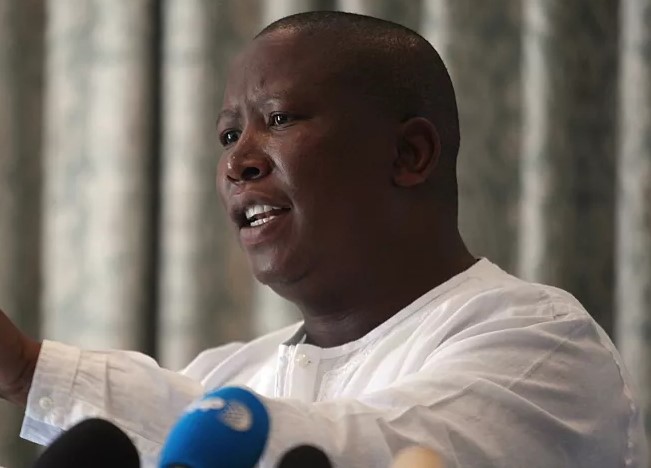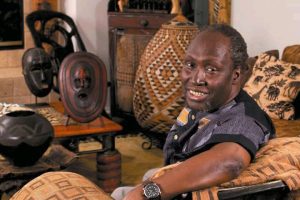Kenya set to host connected Africa Summit 2025
3 min read
Malema blasts U.S. and media claims of Afrikaner persecution, calls refugee reports “fiction and drama.”
Economic Freedom Fighters (EFF) leader Julius Malema has dismissed recent reports of Afrikaners fleeing South Africa due to violence and persecution, labeling the claims as “fiction” and “drama.”
In a sharp rebuke during a media interview, Malema questioned the legitimacy of reports suggesting that 49 white South African farmers, mostly Afrikaners, had recently relocated to the United States as refugees. He directly criticized both the media and the U.S. government for spreading what he called false narratives about the situation of white farmers in South Africa.
“There’s no one who has been killed here in South Africa. It’s not true,” Malema said. “There are no 49 Afrikaners who have left South Africa. You all know that it’s fiction, it’s drama. America, when it comes to drama, is number one.”
Malema’s comments come in response to a recent statement by former U.S. President Donald Trump, who claimed that white farmers were being targeted in a “genocide” in post-apartheid South Africa. Trump said he planned to raise the issue with South African leaders, citing the alleged persecution as the basis for granting refugee status to the group.
However, the South African government has strongly rejected the claims, calling them “completely false” and based on misinformation. Officials emphasized that Afrikaners continue to hold a privileged socio-economic position in the country and remain among the wealthiest and most successful communities.
Even AfriForum, a prominent Afrikaner civil rights group, has acknowledged that while farm attacks do occur, they do not amount to genocide. The group has consistently accused the government of not taking farm violence seriously but has not supported claims of systematic persecution or ethnic cleansing.
Malema further criticized the U.S. government for interfering in South African domestic issues, especially regarding land reform. He said such interventions are intended to silence efforts to redress historical injustices related to land ownership.
“If those people were farmers, it would mean there are 49 farms available,” Malema argued. “Why are we not expropriating them because they have abandoned them? But why is the media not telling us this? Why doesn’t the media, through its own investigation, tell us who the real farmers are?”
He challenged international bodies, including the U.S., not to weaponize South Africa’s land reform debates for political purposes. He maintained that the EFF’s stance on land expropriation without compensation is rooted in justice and equality, not racism or division.
Malema, known for his confrontational rhetoric and outspoken support for land redistribution, reiterated his party’s call to return land to Black South Africans who were dispossessed during colonial and apartheid eras. His position has drawn sharp criticism locally and internationally, particularly from landowners and investors concerned about property rights and economic stability.
“International actors must not use land issues to undermine our struggle for justice,” Malema said. “Our call for land reform is not a declaration of war — it is a call for dignity.”
The debate over land ownership and farm security continues to divide opinion in South Africa. While the government insists it is addressing the issue responsibly, critics argue that inflammatory rhetoric and poor governance have created uncertainty.
Malema’s latest remarks are likely to reignite global debate over South Africa’s land policies and the broader narrative surrounding white farmer safety in the country. His statements also underscore growing tensions between local politics and international perceptions, particularly around issues of race, land, and economic equity.
As political rhetoric heats up ahead of the next election cycle, land reform remains one of the most polarizing and emotionally charged issues in South African politics — one that continues to attract international scrutiny.





